Fashion is a major part of our lives, and it’s important to know the materials used in clothing. Sustainable fashion is becoming increasingly popular as people become more conscious of their environmental impact.
Why are people choosing to switch to sustainable fashion?
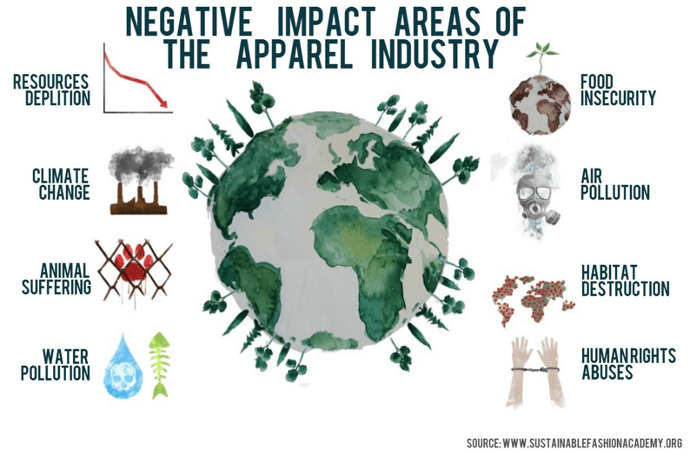
The fashion industry is one of the most polluting industries in the world. It has a large carbon footprint and contributes to water and air pollution due to chemical dyes, synthetic materials, and bleaches used in production. Choosing sustainable and eco-friendly materials reduces the fashion industry‘s environmental impact while still allowing us to stay fashionable.
In addition, these materials often have a longer life span and can be recycled fabric or upcycled fabric after they’ve been worn out.
Here are some of the most popular sustainable and eco-friendly materials used in fashion:
The fashion industry is one of the most polluting industries in the world. It has a large carbon footprint and contributes to water and air pollution due to chemical dyes, synthetic materials, and bleaches used in production. Choosing sustainable and eco-friendly materials reduces the fashion industry‘s environmental impact while still allowing us to stay fashionable.
In addition, these materials often have a longer life span and can be recycled fabric or upcycled fabric after they’ve been worn out.
Here are some of the most popular sustainable and eco-friendly materials used in fashion:
Organic cotton
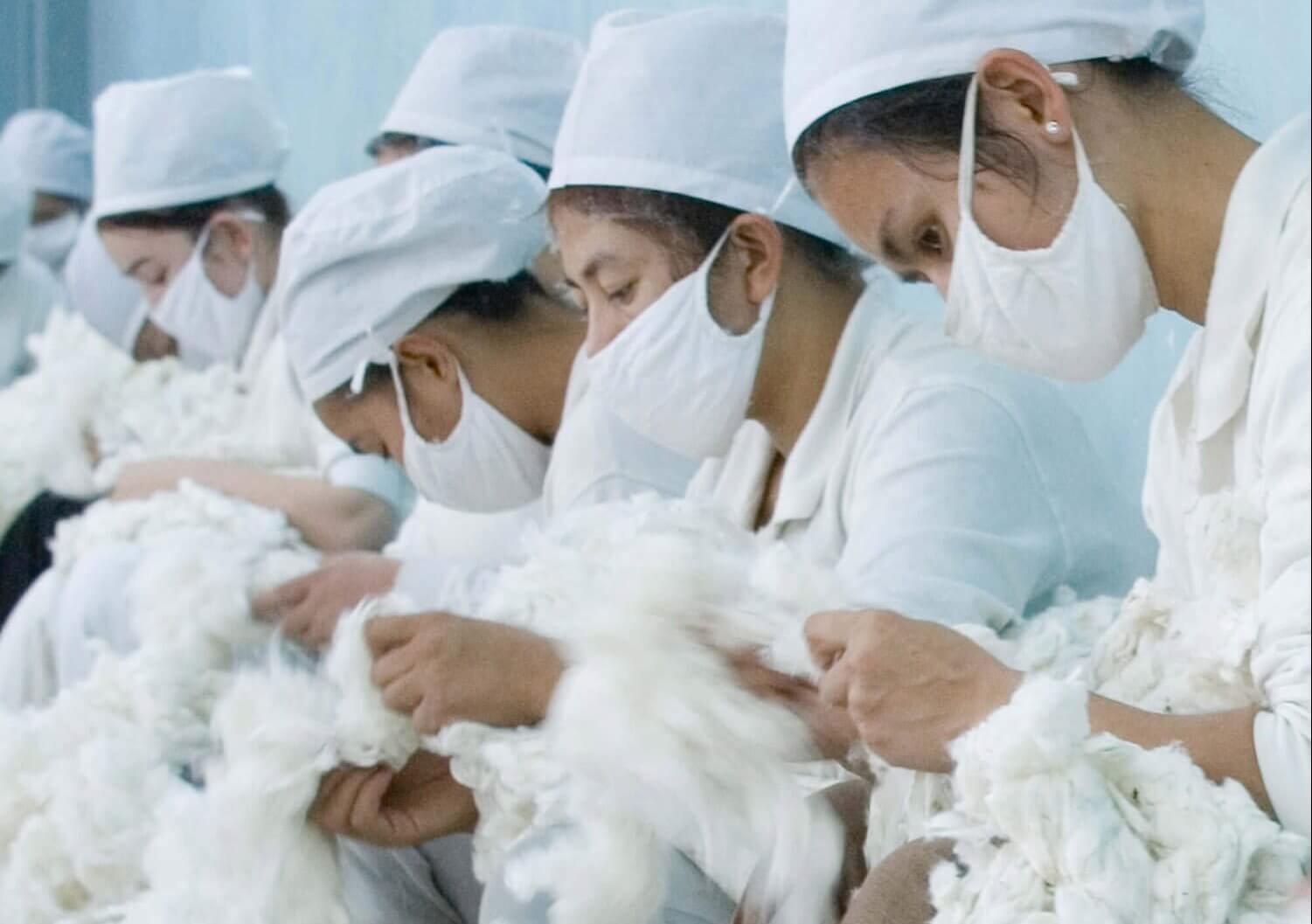
Organic cotton is one of the most natural fabrics available for clothing. It is extracted from natural cotton and contains no chemicals, making it a friendly product for human health and the environment. Organic cotton is farmed in a more nature-oriented way than traditional cotton, making full use of solar energy and rainwater. And it can also help the soil moisture and reduce water and energy consumption.
Application
Organic cotton fabrics are widely used in everyday life, especially for those with sensitive skin and prone to allergies. It is also the sustainable material of choice for making green products. For example, organic cotton bras are good at keeping the skin breathable and are less likely to cause allergies.
For women preparing for pregnancy, choosing maternity clothes made of organic cotton is also important. This can avoid the use of a lot of chemicals that cause unnecessary harm to the body.
Advantages
The use of organic cotton fabrics made of clothing is very friendly to human health and a good safeguard for the environment. Organic cotton requires much more water and energy compared to traditional chemical fabrics.
By choosing products made with organic cotton, we can help to support sustainable farming practices and protect the environment. Organic cotton is a natural, durable fabric that is gentle on the skin and easy on the planet.
Certification
Organic international certification ensures that the cotton production process complies with organic standards to protect the rights of consumers.
Currently, the world‘s most recognized international certification systems for organic cotton include
- USDA Organic Certification,
- GOTS Certification,
- Organic Content Standard (OCS),
- BCI Standard,
- Fair Trade,
- Bluesign
- and Oeko-Tex 100.
These international certification systems can protect consumers from buying real organic products and protect farmers’ survival and development.
Recycled cotton
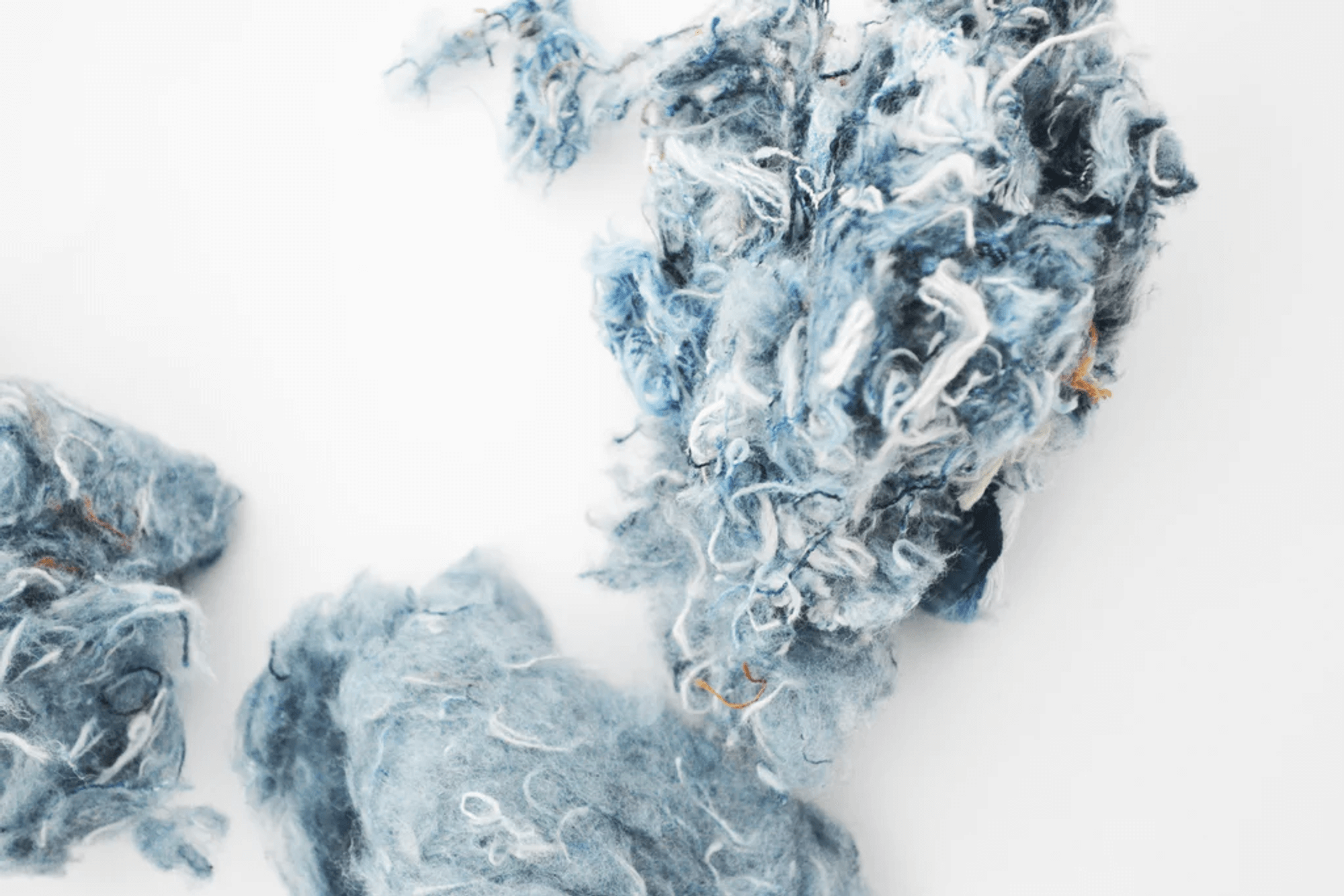
Recycled cotton is produced using post-industrial or post-consumer waste. The most common wastes are waste cotton, cotton yarn, fabric, cotton fibre, and cotton boll. It can also be obtained from other plants, such as flax or jute. Reusing cotton in these wastes presents an obvious solution to global climate change and population growth. In addition, waste recycling can reduce the demand for cotton and thus the reliance on traditional agriculture.
Advantages
- Saving energy consumption
- Reduced release of harmful substances
- Reduced product costs
- Guaranteed high-quality standards
- Reduce water and energy consumption
Challenges
- recycled fabric are difficult to meet purity requirements
- A strong recycling system has not yet been developed
- Needs a lot of chemical treatment
- Low cotton production
Future Outlook
As people realize the importance of sustainability, it is estimated that recycled cotton will become integral to conventional cotton production. However, much research and development work will be required before this can be achieved.
Certifications and standards
- Global Recycling Standard (GRS),
- Recycled Content Standard (RCS),
- Oeko-Tex 100.
Organic Hemp
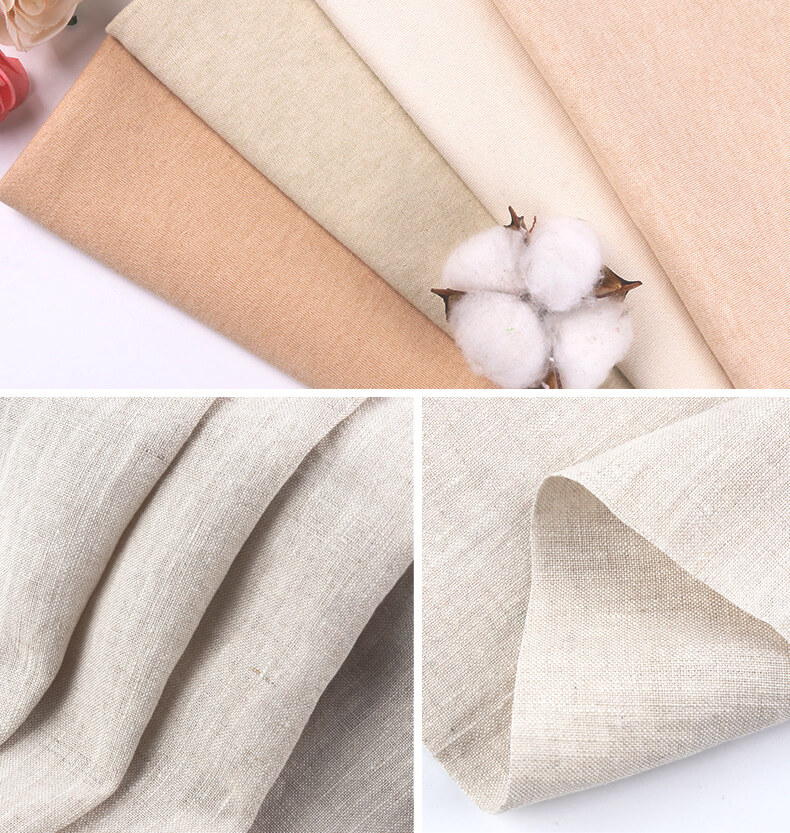
Hemp is one of the most environmentally friendly natural fabrics around. There are several ways that the hemp plant can be used in the clothing industry, and several certification and standard bodies ensure that hemp products are up to scratch.
Applications
Hemp can be used to make a range of different clothing items, including
- shirts,
- pants,
- dresses,
- and even shoes.
Advantages
Hemp is a strong and durable fabric, making it ideal for garments with a lot of wear and tear. Additionally, hemp is breathable and absorbent, making it comfortable to wear in all weather conditions.
Certification and standards
To ensure that hemp products are of high quality, a number of certification and standard bodies set standards for the industry. These bodies include
- the International Hemp Association,
- the European Industrial Hemp Association,
- and the National Hemp Industries Associations in the United States and Canada.
Organic linen
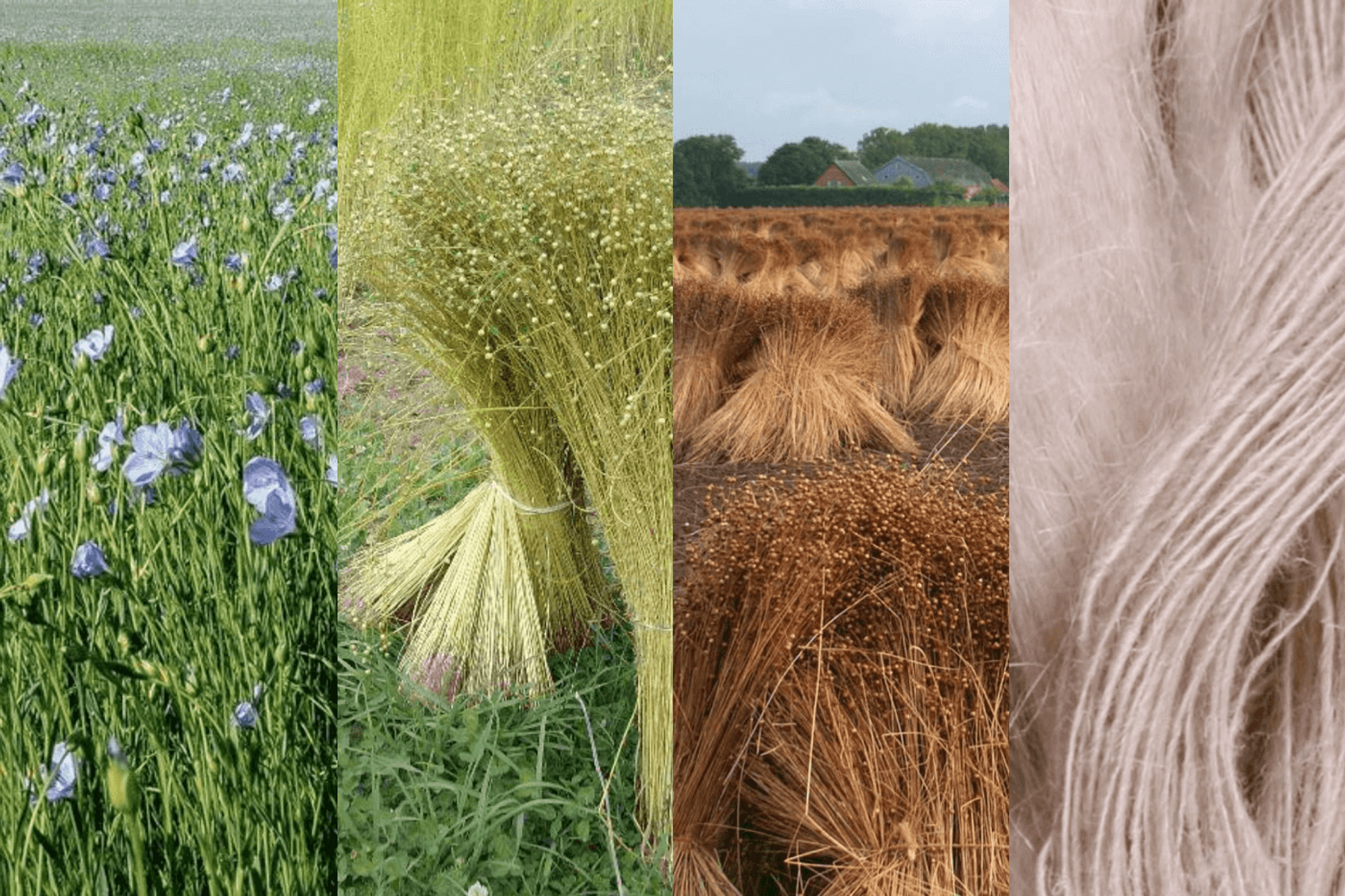
Linen fibre can be traced back to about 6000 BC. Linen is a renewable natural fibre, as with cotton, hemp and silk fibres, which are highly organic. Traditionally, linen has been used to make various items, including canvas, rope and clothing. In the past few decades, linen has gradually been recognized and widely used in various fields.
Applications
With the growing emphasis on sustainability, linen fabrics are gaining attention and recognition. Compared with cotton and linen, linen is much more durable; its elasticity also makes it more suitable for producing a variety of clothing. In addition, linen has a certain degree of moisture absorption (and therefore also suitable for hot weather) but also retains the skin’s natural oils. Thus, organic linen will become one of the mainstream materials for the apparel industry in the coming years.
Certification and standards
The Global Organic Textile Standard (GOTS) is one of the standards established to ensure that textile products (including yarns, fabrics, garments and home textiles) meet the sustainability requirements during production.
Organic bamboo (also known as bamboo linen)
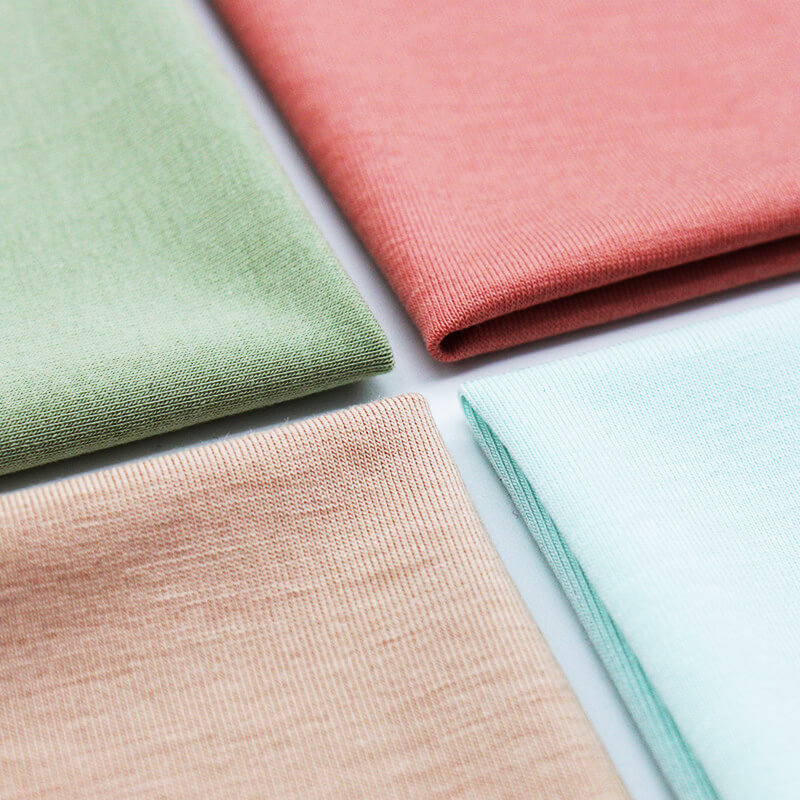
Organic bamboo can be harvested without killing the plant itself. Bamboo can regenerate quickly – it is one of the fastest-growing plants on Earth.
Applications
There are many applications for bamboo in the textile industry:
- Bamboo fibre can create various clothing items, including t-shirts, shirts, dresses, and even underwear.
- Bamboo fabric is also soft and sustainable, making it a popular choice for baby clothes.
Certification and standards
There are a few things to keep in mind:
- GOTS is the leading certification for organic fabrics globally.
- The International Organization for Standardization (ISO) also has a set of standards for bamboo textiles.
So, if you’re looking for a sustainable and eco-friendly fabric, bamboo is a great option.
Cork fabric
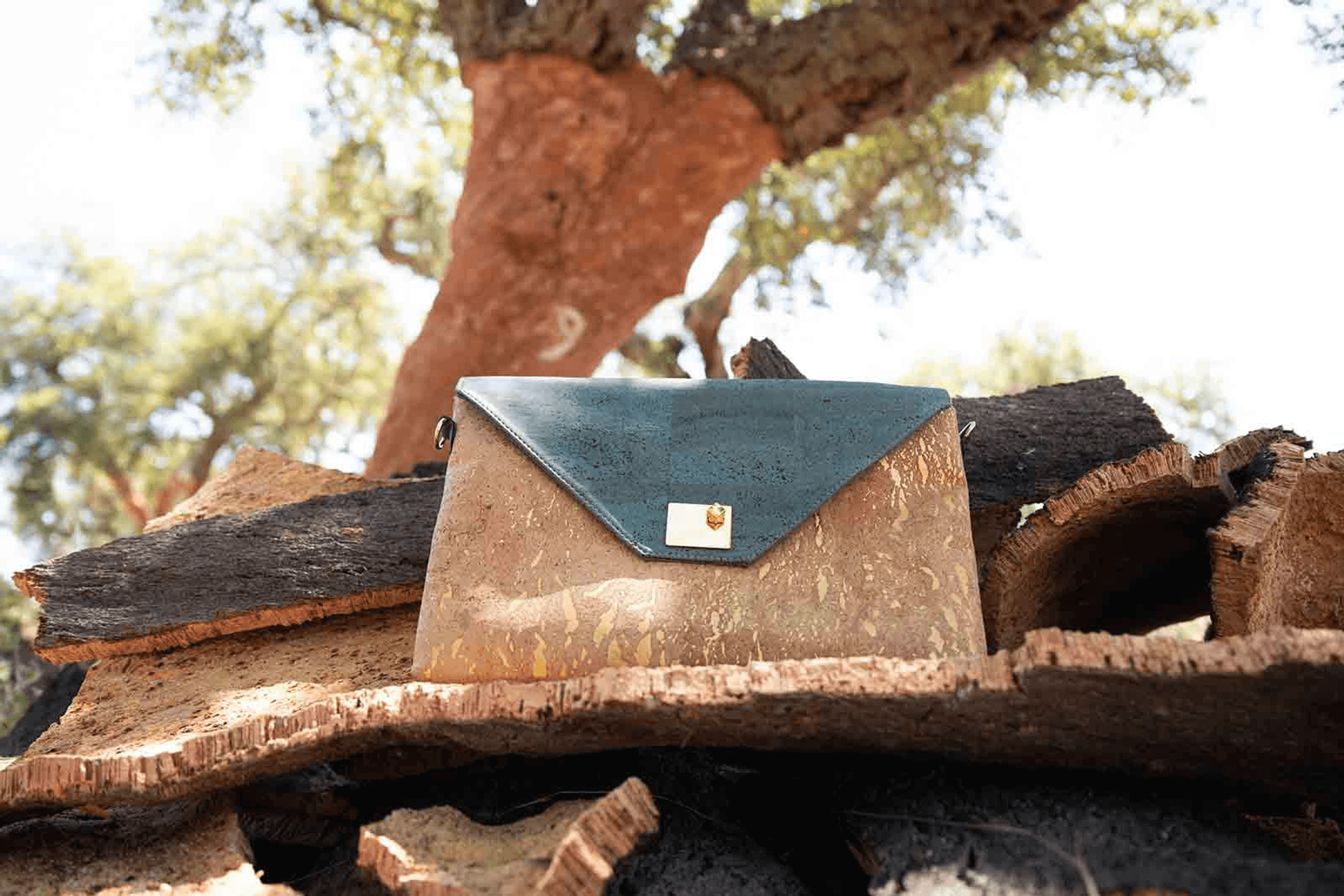
The cork fabric has left the boards and bottles and is used to dress us.
This sustainable material has become a popular choice for vegan handbags and shoes as it is praised for its sustainability and eco-friendly credentials.
Applications
Here are some of the ways that the cork fabric is being used in the fashion industry:
- Handbags – light and strong, cork handbags are a great sustainable alternative to leather as they are environmentally friendly and stylish.
- Shoes – from heels to flats, Cork shoes are comfortable and fashionable.
- Clothing – shirts, skirts, and even jackets made of cork fabric are becoming more popular as people look for sustainable clothing options.
- Accessories – jewellery, belts, and hats made from cork- are also becoming popular fashion items.
Certification and standards
Before buying cork fabric, here are a couple things to remember.
- First, ensure that the fabric is certified by the Forest Stewardship Council (FSC). This certification means that the fabric was made in an environmentally responsible way.
- Second, look for a product with the Oeko-Tex Standard 100 label. This label guarantees that the fabric does not contain any harmful chemicals.
Econyl
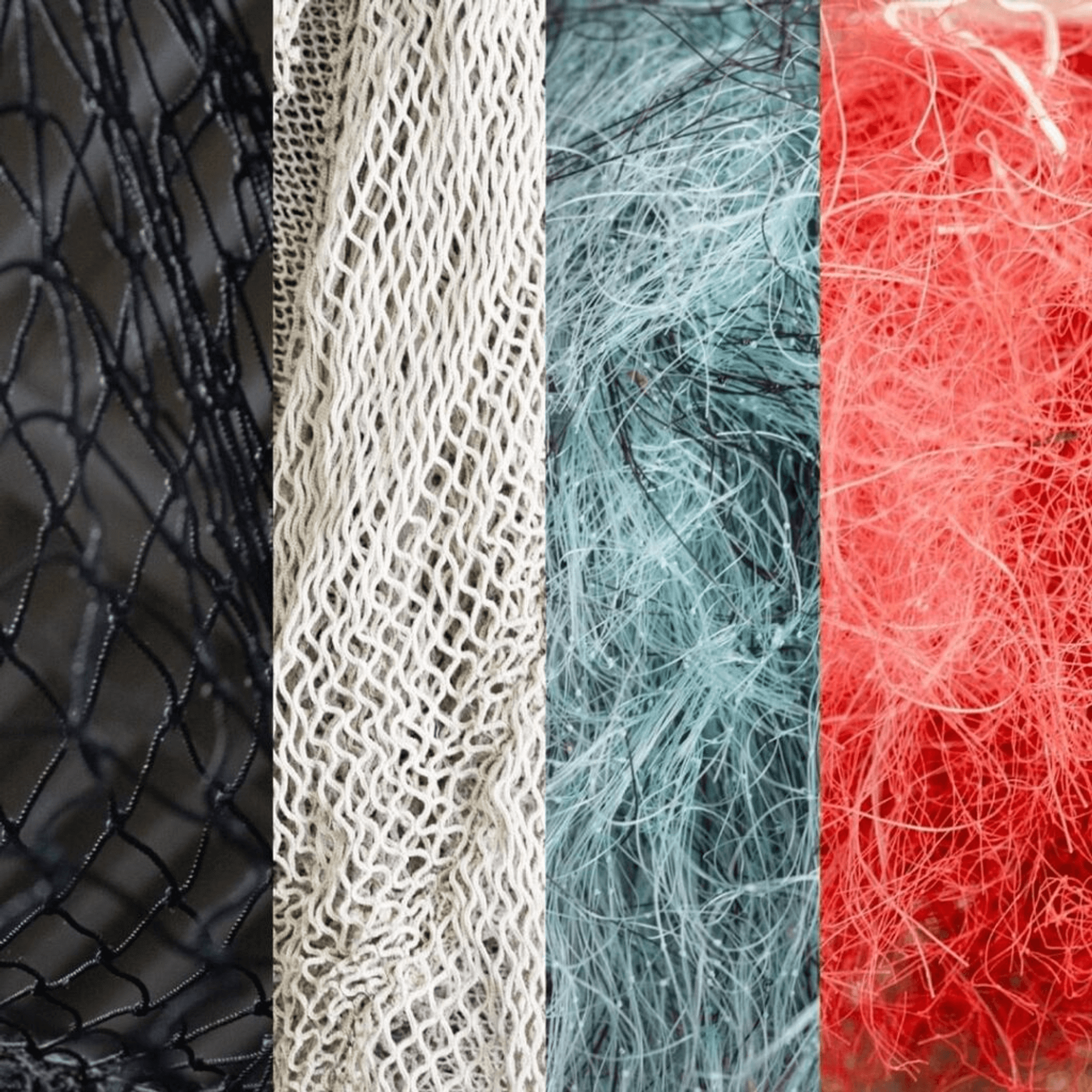
Econyl is the trade name for recycled nylon. It is recycled mainly from waste plastics (e.g., automotive waste plastics, container waste plastics, and old carpets). In the apparel industry, it is widely used to make high-performance sportswear, underwear, etc. It usually accounts for 10-15% of the fabric composition and can be 100% recycled fabric. In addition, according to the Oeko-Tex Standard 100 test (an international standard for material and product safety), Econyl is non-toxic and safe to use.
Applications
Econyl is a product name for recycled nylon. It is mainly made from post-consumer plastics (such as automotive plastics, container plastics and old carpets) recycled.
In the fashion industry, it is widely used to make performance sportswear, underwear, etc. It typically makes up 10-15% of the fabric content and can be 100% recycled and reused.
In addition, Econyl has been proven to be non-toxic and safe to use according to the Oeko-Tex Standard 100 test (an international standard for material and product safety).
Certifications and Standards.
Econyl meets the Global Recycling Standard (GRS) requirements and the Recycled Cellulose Standard (RCS.) The GRS certification guarantees that the final product contains at least 10% recycled materials and is certified by a third party (e.g. Control Union.)
The RCS certification covers the prerequisites and environmental aspects of the entire life cycle of recycled cellulose fibres (viscose, modal, lyocell). To obtain this certification, at least 50% of the fibre must come from certified sources of renewable raw materials, such as sustainably managed forests or used clothing.
Recycled polyester
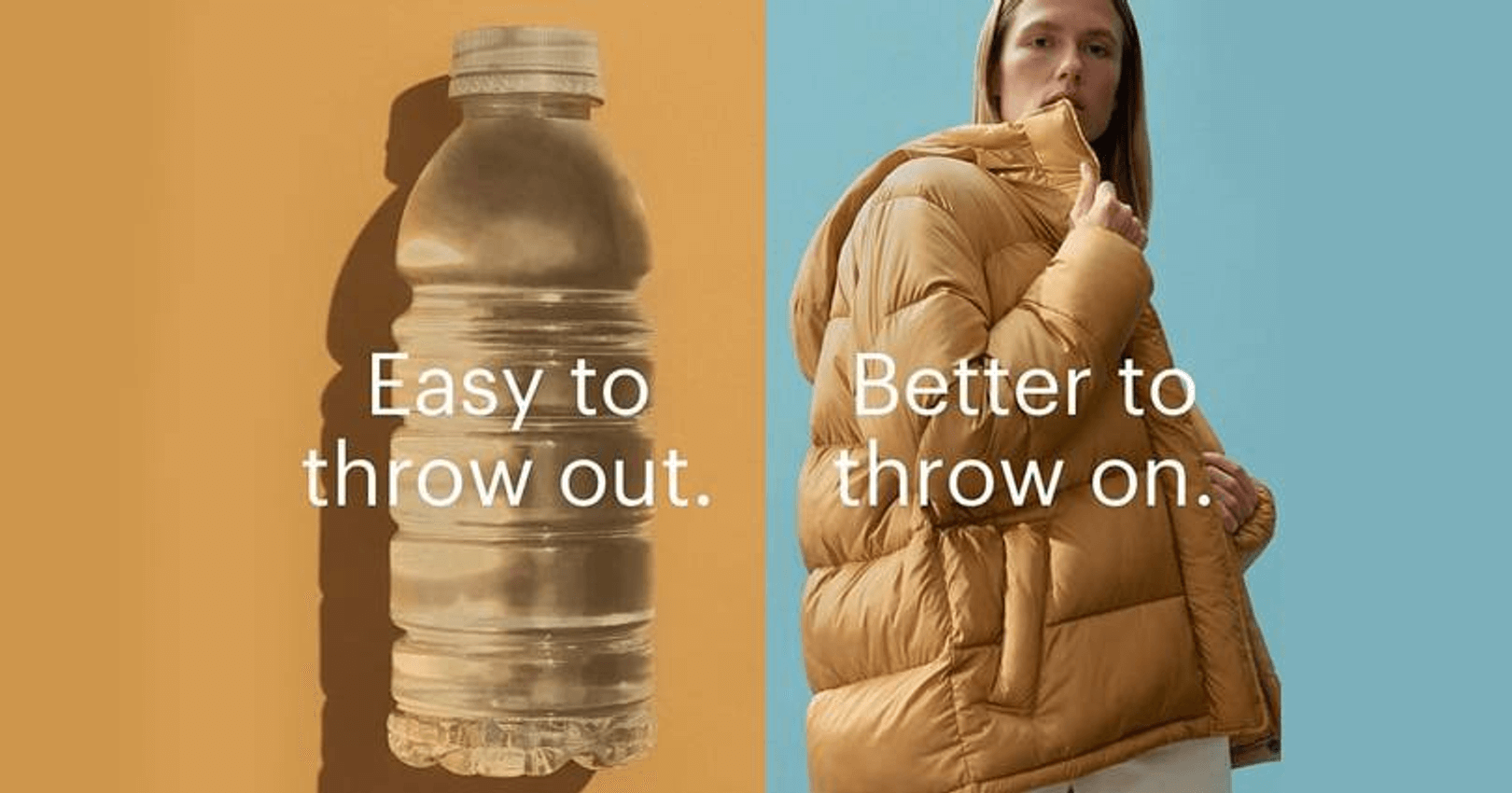
Recycled polyester (Polyester made from recycled plastic) is a fibre made from waste plastic and is mainly used in the manufacture of clothing. As people become more and more concerned about environmental protection, the use of recycled polyester is increasing.
Application
- The application in the garment industry has been widely concerned and recognized. Because of its good abrasion resistance, wrinkle resistance, elasticity and non-pilling characteristics, it has become the material of choice for high-end clothing.
- In addition, it also has good water resistance and breathability, making it a broad application prospect in sportswear.
Certification and standards:
At present, recycled polyester products have passed a series of authoritative international certification systems, such as
- GRS (Global Recycled Standard),
- BCI (Better Cotton Initiative)
- and RDS (Responsible Down Standard).
Lyocell
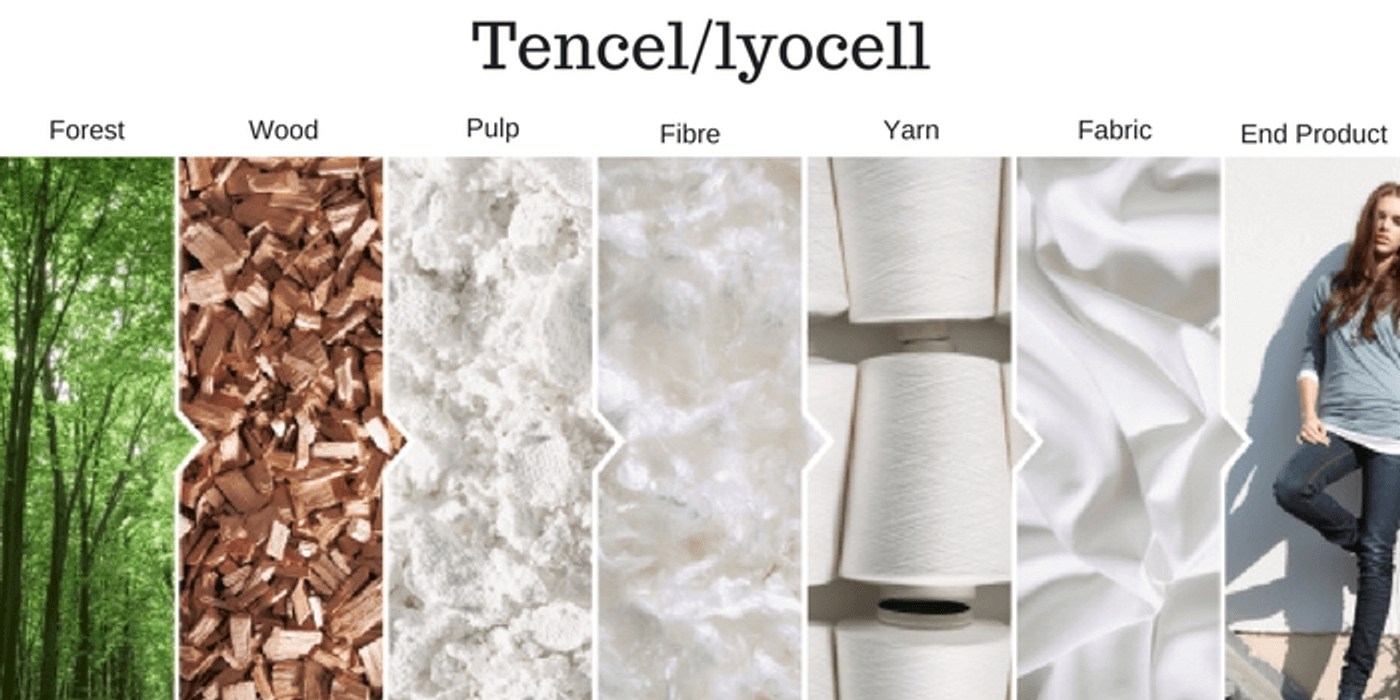
Lyocell is a type of cellulose fibre that is made from dissolving wood pulp in an organic solvent. The solution is then passed through a spinneret, which creates the fibre. Lyocell is sometimes also known as TENCEL™.
Applications
Lyocell has several important applications in the clothing industry. It is often used to make garment fabrics, such as
- shirts,
- dresses,
- and trousers.
Fibre is also commonly used in home furnishings, such as
- upholstery
- and bedding.
Certification and Standards
Lyocell is certified by several international organizations. These include
- the International Organization for Standardization (ISO),
- the European Committee for Standardization (CEN),
- and the American Society for Testing and Materials (ATSM).
MODAL
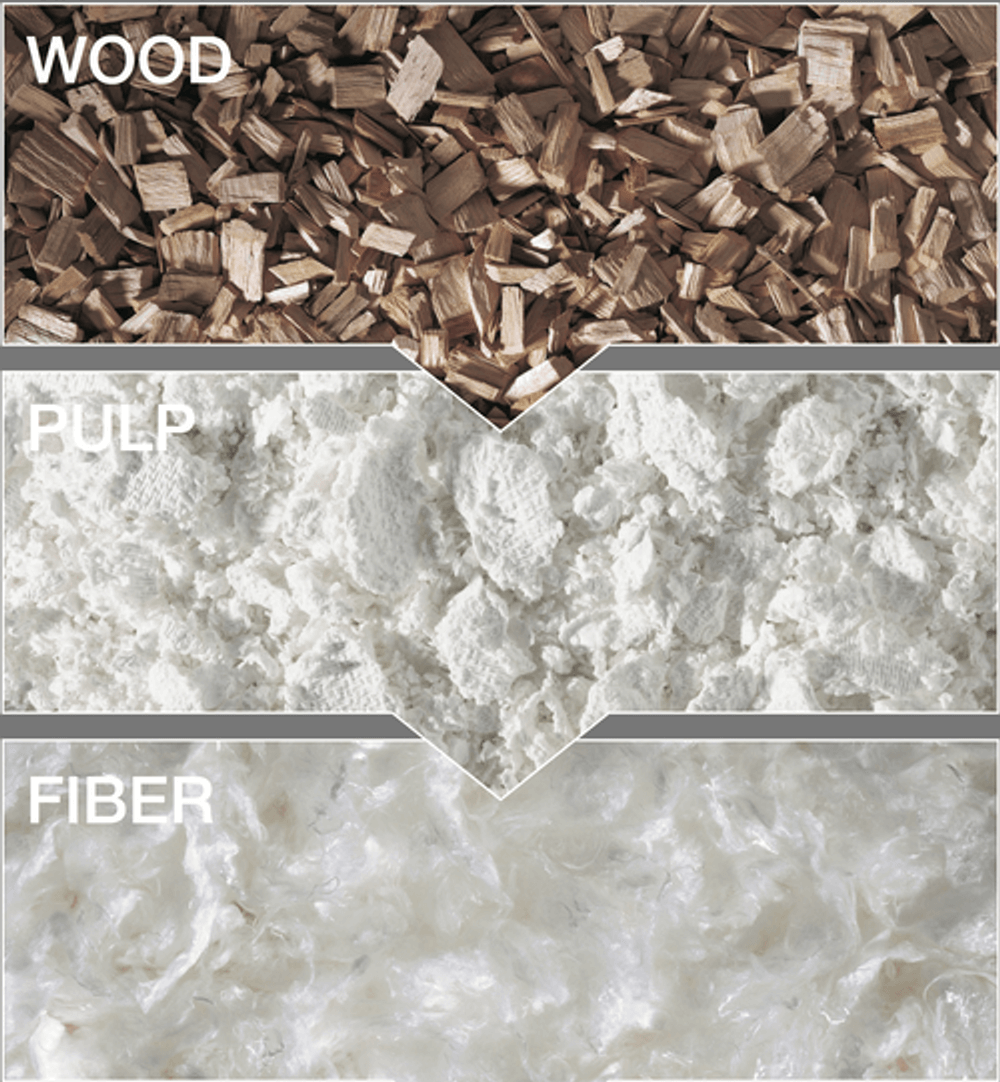
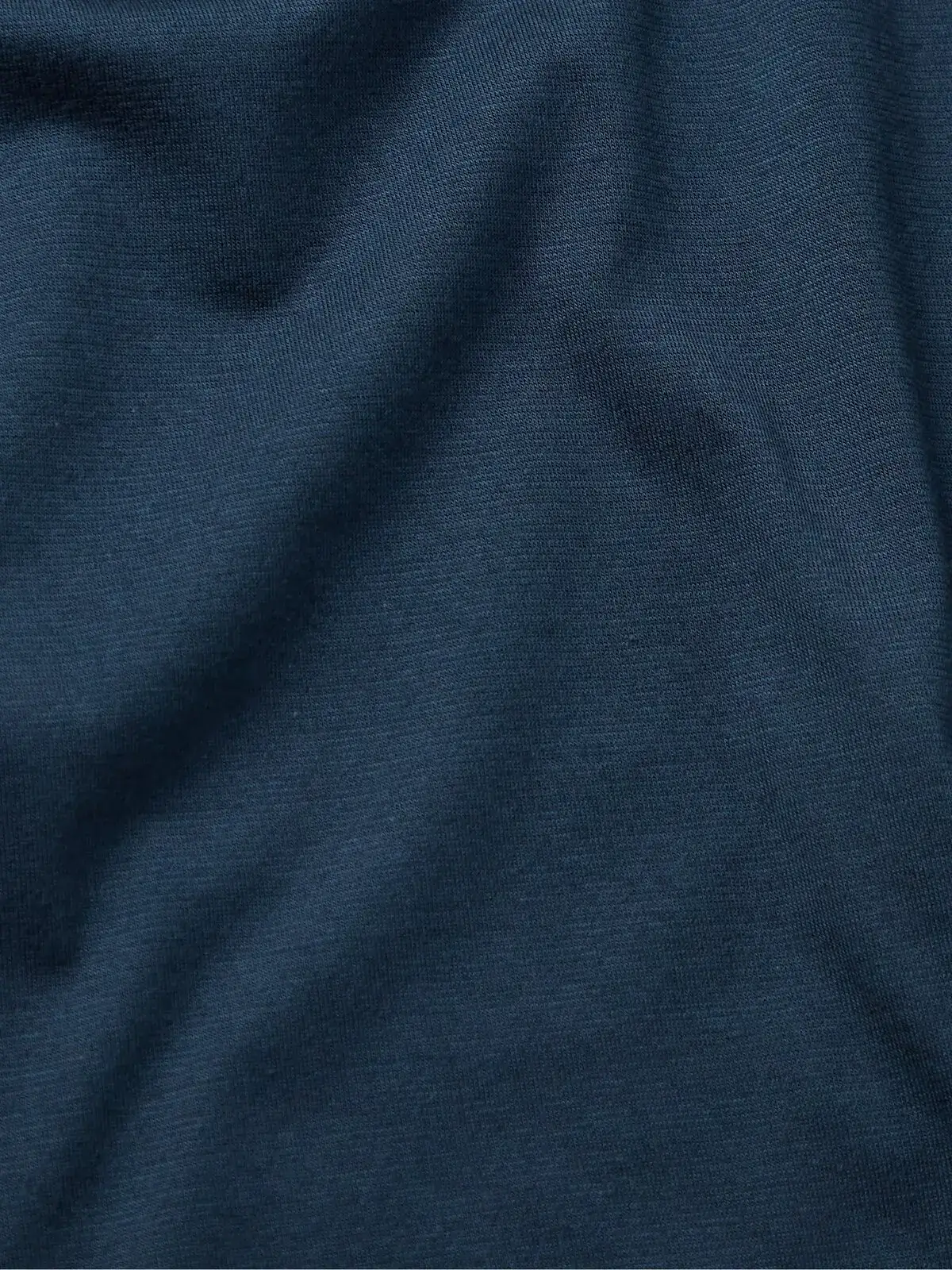
Wrapping up
These are just a few examples of sustainable fabrics that can be used to create fashion items. As the demand for eco-friendly materials increases, more and more sustainable options will become available on the market. By choosing these materials over conventional fabrics, consumers can help reduce their environmental impact and support fashion brands that prioritize ethical manufacturing practices.
At Lezhou garment, we have over 10 years of experience in the sustainable custom clothing industry. We utilize organic cotton, hemp, lyocell, modal and bamboo fabrics to produce eco-friendly garments. Our top priority is to offer high-quality custom clothing that has a minimal negative impact on the environment.
Contact us today to know more information about our sustainable fabric options and how we can help you achieve a greener future.
